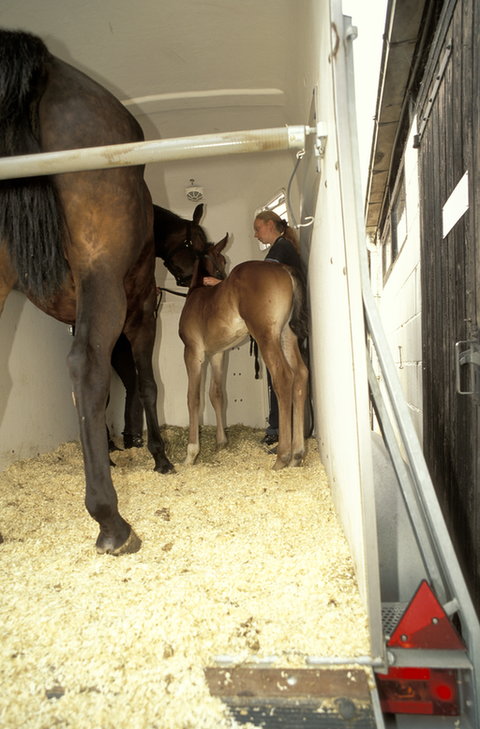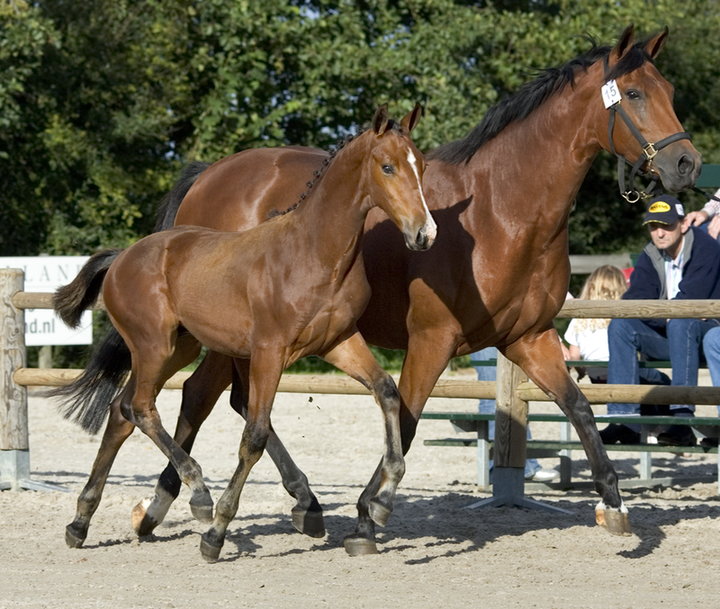
Week 10

Determinate boundaries
People often enjoy hugging a foal and holding it close, but it is important for a foal to have its personal space, and you must also teach it to respect your personal space. The mare plays a big role in this, but the assistance of other horses is important too. This is because some mares are too soft on their foal and allow it to invade their personal space too much. This teaches the foal that it can walk into or jump up to anyone without there being any consequences. This may not seem that much of a problem when it is a small foal, but it will be a lot less fun when it is an adult horse. So determine your boundaries early on and respect your foal's boundaries too.

Week 11

New things
It is good and important to teach your foal new things, but keep it short and sweet. It is better to spend ten minutes per day with your foal rather than doing long sessions with lots of repetition. Your foal already has lots of new things to remember. Plus, foals, like children, have a very short attention span.

Good condition
It is important for your foal not to get overweight. If you keep it in good health, it should not be able to store fat at any time. If you cannot see or feel your foal's ribs, or you can pinch an inch in its neck, your foal is overweight.
Week 12 (3 months)

Tied up
Get your foal accustomed to getting tied up. Do not tie it up for real straight away, but create the illusion of it being tied up, for example by threading the rope through an eyelet on the wall and holding on to the ends yourself. When the foal is older and well accustomed to this, you can expand on this by tying it up using a simple halter hitch. Make sure you always stay with your foal and make sure you can untie it immediately.
Transporting Your Foal
Never too young to learn! Teach your foal how to gently get on a trailer from an early age. It will be important for the mare to get on the trailer quickly, so the foal will not feel unduly stressed. The mare's confidence and calming influence will make the foal feel safe. Remove the separation from the trailer and transport mother and foal together in a large loading area. Use the front and rear bars to create stability for the mare for when you need to brake and pull away. A foal rack is handy too, to stop your foal from jumping over the loading ramp.

4 months

Worms
Worm your foal using a product against roundworms. Virtually every foal will be affected by these worms.

Up for Approval
Perhaps your foal will go up for approval. Its exact age at the time will depend on when your foal was born. It is important to properly prepare for this. Some tips:
- Transport your foal a couple of times beforehand, not just to familiarise it with being transported but also so it can get used to being in a variety of places.
- You can also practise with your foal on its own turf by moving it into a different field or paddock for a change.
- Have a go at braiding its mane and tail. This will prevent a lot of stress on the day the foal goes up for approval.
- Start hand-walking your foal. Make sure your foal knows what you want it to do. If you have already practised this by hand-walking your foal to a field every day, this is likely going to be much easier. But also take it to an unfamiliar environment.
- Get it to practise standing still. You will not need to do this very often, although it is also a good thing to teach your foal to stay still for a moment.
